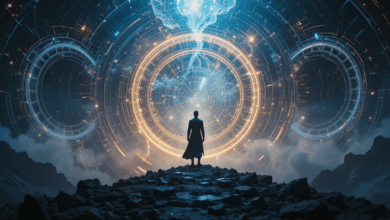Canon Meaning in Shows: A Comprehensive Guide

Introduction
In the world of television and film, the term “canon” is frequently used, but not everyone fully understands what it means. The canon meaning in shows refers to the official and accepted storyline, events, and character developments as recognized by the creators and the show’s production. Understanding the canon meaning in shows is crucial for fans who want to engage deeply with the narratives and characters they love. This blog post will take you through the significance of canon in shows, its implications for storytelling, and why it matters to both creators and audiences.
What is Canon in Shows?
The term “canon” might sound familiar from religious or literary contexts, but its meaning in the realm of television shows is equally important. Essentially, canon refers to the officially recognized body of work within a particular show’s universe. It encompasses the storylines, characters, events, and world-building elements that are considered authoritative and definitive. This canon is typically established by the show’s creators and producers and serves as the foundation for subsequent storytelling.
The Importance of Canon
Understanding the canon meaning in shows is crucial for several reasons. First, it provides a shared framework for fans to discuss and analyze the series. By establishing a common ground, fans can engage in meaningful conversations about plot developments, character arcs, and thematic elements. Second, canon helps maintain consistency and coherence within the show’s narrative. It prevents contradictions and plot holes, ensuring a satisfying viewing experience. Finally, canon can influence the creation of spin-offs, sequels, or prequels, as these new works must align with the established canon to avoid disrupting the overall story.
Canon vs. Non-Canon: The Distinction
While canon refers to the officially recognized content, non-canon material exists outside this realm. Examples of non-canon content include fan fiction, alternate timelines, and behind-the-scenes footage. While non-canon works can be enjoyable and creative, they are not considered part of the official show universe. It’s important to distinguish between canon and non-canon to avoid confusion and maintain a clear understanding of the show’s storyline.
Expanding the Canon: Spin-offs and Sequels
The canon meaning in shows can expand through spin-offs and sequels. These new works often introduce new characters and storylines while incorporating elements from the original series. However, it’s essential to maintain consistency with the established canon to prevent contradictions. Well-executed spin-offs and sequels can enrich the overall show universe and provide fans with additional opportunities to explore their favorite characters and worlds.
The Impact of Fan Fiction on Canon
Fan fiction has become increasingly popular, with fans creating their own stories based on their favorite shows. While fan fiction is undoubtedly creative and engaging, it falls outside the realm of canon. However, fan fiction can sometimes influence the creation of official canon content. For example, if a particular fan theory or character interpretation gains widespread popularity, show creators might incorporate these elements into future episodes. This interaction between fans and creators blurs the lines between canon and non-canon, creating a dynamic and evolving relationship.
Canon in the Age of Streaming
The rise of streaming platforms has significantly impacted the concept of canon. With binge-watching becoming the norm, viewers can consume entire seasons in a short period, leading to a deeper understanding of the show’s universe. Additionally, streaming platforms often release behind-the-scenes footage and deleted scenes, which can provide additional context and information about the show. These factors contribute to a more complex and nuanced understanding of canon, as fans have access to a wider range of materials.
The Role of Social Media in Shaping Canon
Social media has become a powerful tool for fans to connect and discuss their favorite shows. Online platforms allow fans to share theories, create fan art, and engage in discussions about canon and non-canon content. While social media can enhance the fan experience, it can also lead to disagreements and debates about what constitutes canon. The constant influx of information and opinions can make it challenging to determine the definitive canon of a show.
Canon and Continuity Errors: The Challenges of Storytelling
Maintaining consistency within a show’s canon can be challenging, especially for long-running series. Continuity errors, such as inconsistencies in character appearances or plot details, can disrupt the viewer’s immersion in the story. These errors can occur for various reasons, including changes in the writing staff or production schedules. While minor inconsistencies might be overlooked, significant continuity errors can damage the show’s credibility and frustrate fans.
The Subjectivity of Canon
It’s important to recognize that the concept of canon is subjective to some extent. Different fans may have varying interpretations of what constitutes canon, based on their personal preferences and understanding of the show. Additionally, show creators themselves may have different ideas about what is considered canon. This subjectivity can lead to debates and disagreements among fans, but it also highlights the richness and complexity of the fan experience.
Canon and the Future of Television
As the television landscape continues to evolve, the concept of canon will likely undergo further changes. With the increasing popularity of limited series and anthology formats, the traditional notion of canon may become less relevant. However, even in these new formats, the concept of establishing a coherent and satisfying narrative remains essential.
Conclusion
The concept of canon is fundamental to understanding and appreciating television shows. By exploring the different aspects of canon, fans can gain a deeper appreciation for their favorite series. While the definition of canon may vary, it remains a valuable tool for analyzing, discussing, and enjoying the world of television.
FAQs
1. What is the difference between canon and headcanon?
Canon refers to the officially recognized content of a show, while headcanon is a personal interpretation or theory created by a fan. Headcanon is not considered part of the official canon.
2. Can non-canon content become canon?
In some cases, non-canon content, such as fan fiction or fan theories, can influence the creation of official canon content. However, this is not always the case, and non-canon content typically remains outside the realm of canon.
3. Is everything in a show’s universe considered canon?
Not everything in a show’s universe is necessarily canon. Behind-the-scenes footage, deleted scenes, and alternate endings are examples of non-canon content.
4. How can I determine what is canon and what is not?
The best way to determine what is canon is to rely on official sources, such as the show’s creators, producers, or official website. However, it’s important to remember that even official sources may not always provide definitive answers.
5. Does canon matter?
Whether or not canon matters is a personal preference. Some fans enjoy focusing on the official canon, while others are open to exploring non-canon content. Ultimately, the most important thing is to enjoy the show in a way that is personally satisfying.





